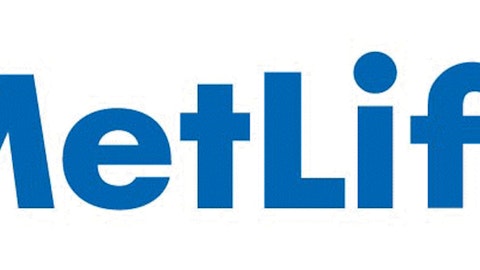
What’s the difference?
Before looking into the risks associated with an investment in a mortgage REIT, one needs to be clear regarding the differences between an Agency and a non-Agency mREIT.
Agency mortgage REITs own and invest in mortgage backed securities for which principal and interest payments are guaranteed by any of the government agencies. These are mostly residential mortgage backed securities which are backed with single-family home loans. American Capital Agency Corp. (NASDAQ:AGNC) and Annaly Capital Management, Inc. (NYSE:NLY) are two of the largest Agency mREITs that invest in Agency residential MBS.
In contrast, non-Agency or hybrid mREITs invest in a combination of Agency and non-Agency MBS. Non-Agency MBS are securities for which the government does not guarantee any principal and interest payments. Therefore, these securities usually have a credit or default risk. To compensate this higher risk, these securities offer higher returns compared to their Agency counterparts. PennyMac Mortgage Investment Trust (NYSE:PMT) is one such non-Agency mREIT.
Government guarantee
Since now we know what an Agency mREIT is, let’s look at some of the risks associated with an Agency mREIT. Investments in American Capital Agency Corp. (NASDAQ:AGNC) and Annaly Capital Management, Inc. (NYSE:NLY) will expose you to financing risks, prepayment risks, dividend risks, regulatory risks, and reliance on external capital.
Funding risk – American Capital Agency Corp. (NASDAQ:AGNC) and Annaly Capital Management, Inc. (NYSE:NLY) fund their investment portfolios with short-term repurchase agreements. While repurchase agreements provide a relatively low-cost source of funding, any major disruptions in the repurchase markets could cause these companies to seek other, potentially more costly, sources of financing. An example is Invesco Mortgage Capital, which diversified its sources of funding citing similar concerns.
Prepayment risk – When the long-term rates are low, homeowners typically refinance their mortgage at current rates. While prepayments seem to be muted these days due to negative homeowner equity and the lack of mortgage refinancing, a recovery in the mortgage markets or government intervention could lead to a spike in prepayment rates.
Dividend risk – Since mortgage REITs are famous for their elevated dividends, a decline in dividends is a major risk for investors. Dividends for Agency mREITs can be highly variable as they are dependent on the prevailing interest rates. We have seen Annaly Capital Management, Inc. (NYSE:NLY)’s 65% sequential reduction in dividends in the past as an example. During the third quarter of 2005, Annaly Capital Management, Inc. (NYSE:NLY) was forced to cut its dividend due to the Fed’s decision to tighten interest rates.
External capital – American Capital Agency Corp. (NASDAQ:AGNC)’s business model relies, to some degree, on access to the equity markets to fund new investments. An inability to tap the equity markets could have a negative impact on American Capital Agency Corp. (NASDAQ:AGNC)’s earnings, particularly in the current times, when new production MBS are offering higher yields, which need to be added to the portfolio in order to raise average asset yields.
Regulatory risks – Mortgage REITs are being exempted from a lot of regulations currently. However, recently the SEC proposed disallowing certain mortgage securities from an exemption to the Investment Act of 1940. This currently allows American Capital Agency to operate without leverage restrictions. If American Capital Agency Corp. (NASDAQ:AGNC) was to lose this exemption, the company would have to significantly curtail its leverage. This would have the effect of dampening its dividends.
Non-agency
Since PennyMac Mortgage Investment Trust (NYSE:PMT) is a non-Agency mREIT, the most dominant risks for its investors include a decline in the U.S. residential home prices and the company’s portfolio credit risk. These are apart from the aforementioned risks faced by Agency mREITs.
Decline in home prices – Underlying home prices are the key determinant of the value of the loans and mortgage securities companies like PennyMac Mortgage Investment Trust (NYSE:PMT) hold. If the housing market sees another period of significant home price declines, PennyMac could be in trouble as the value of its loans and securities will decline. This could put severe pressure on the company’s earnings and dividends.
Credit risk – Since PennyMac owns a large chunk of non-Agency MBS, its portfolio is exposed to default risk. The company is exposed to risk that the home borrower would default, resulting in a foreclosure and loss to the lender. A bulk of securities that PennyMac holds are non-performing. This further exaggerates the situation for PennyMac. PennyMac can register significant losses if credit turns sour.
What lies ahead?
The future of American Capital Agency does not look very bright, as I believe that the recent portfolio re-balancing exercise would lead the company towards a lower earnings potential and ultimately a lower dividend. I believe that American Capital Agency Corp. (NASDAQ:AGNC) is in need of new equity, which should be used to purchase the new production MBS with higher yields.
In contrast, Annaly Capital Management, Inc. (NYSE:NLY) is poised to post the lowest decline in its book value and a surge in its earnings. Lowest levels of leverage and the presence of commercial real estate (CRE) loans will provide some cushion to the book value, while its recent investment in CreXus Investments will lead the Annaly to better earnings.
PennyMac’s investors have an opportunity to purchase its non-performing loans portfolio below economic value, and current valuation implies zero value to the mortgage origination business. Further, analysts at Citigroup Inc (NYSE:C) believe that there is a possible upside to the company’s dividends.
Conclusion
Mortgage REITs pay dividends in excess of 20% in some cases. However, they are granted a lot of regulatory exemptions, which, if discontinued, could threaten their shareholder distributions. Besides, their business models significantly expose them to macroeconomic factors. So, proper due diligence is required to determine the future of these stocks before you can invest in them. Personally, I am bullish on Annaly Capital Management, Inc. (NYSE:NLY) and PennyMac because of their brighter future.
The article Know the Risks Before You Invest originally appeared on Fool.com and is written by Adnan Khan.
Adnan Khan has no position in any stocks mentioned. The Motley Fool has no position in any of the stocks mentioned. Adnan is a member of The Motley Fool Blog Network — entries represent the personal opinion of the blogger and are not formally edited.
Copyright © 1995 – 2013 The Motley Fool, LLC. All rights reserved. The Motley Fool has a disclosure policy.



